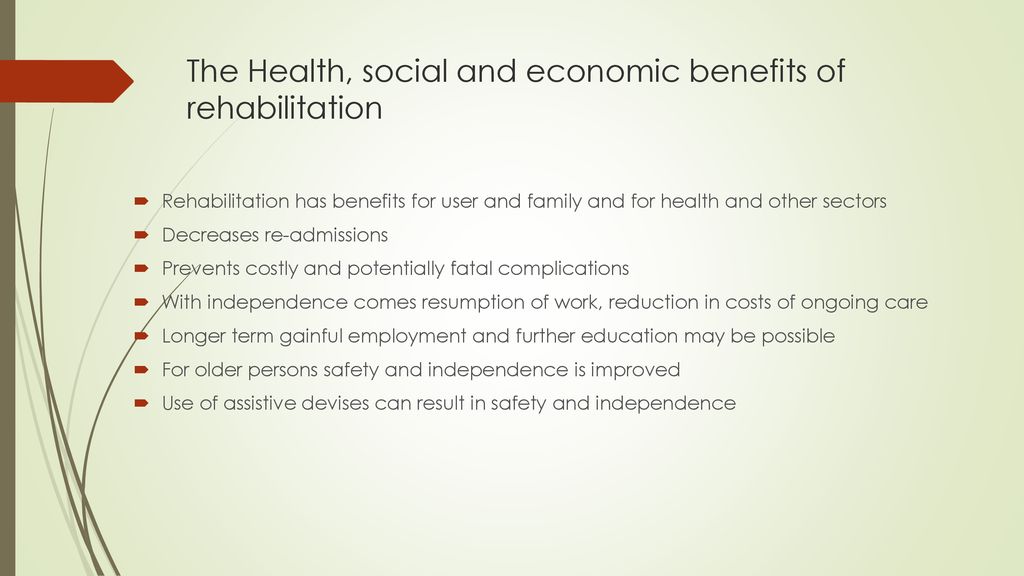The Buzz on Narconon Africa
The Buzz on Narconon Africa
Blog Article
The Buzz on Narconon Africa
Table of ContentsThe Ultimate Guide To Narconon AfricaThe Greatest Guide To Narconon AfricaThe 6-Minute Rule for Narconon Africa4 Simple Techniques For Narconon AfricaThe Best Guide To Narconon AfricaThe Single Strategy To Use For Narconon AfricaUnknown Facts About Narconon Africa
In a series of documents with Manudeep Bhuller and Katrine V. Lken, we get rid of these information difficulties and the nonrandomness of jail time, offering brand-new insights into how incarceration impacts regression, work, youngsters, and criminal networks - Rehabilitation facility Joburg. Figure 1 Our job researches the results of incarceration in Norway, a setting with 2 essential benefitsWe can additionally link this info to other member of the family, consisting of children and brother or sisters. We have information on co-offending that permits us to map out criminal networks for observed crimes. Second, we can utilize the arbitrary project of criminal instances to courts that differ in their propensities to send out defendants to jail.
Some courts send offenders to prison at a high rate, while others are much more lax. We determine a court's stringency as the ordinary incarceration price for all various other cases a court manages, after controlling for court and year fixed effects, which is the degree of random assignment. This quasi-random project of judge stringency can be made use of as an instrument for imprisonment, as it strongly predicts the judge's decision in the current instance, but is uncorrelated with various other instance attributes both by layout and empirically.
The Best Strategy To Use For Narconon Africa
Qualities of prisoners, including demographics and crime categories, are broadly comparable in Norway and other countries, including the United States, with the exemptions that the United States homicide rate is much higher, and race plays a larger function there. What sticks out as different, particularly compared to the USA, is the prison system.
Figure 2In Norway, the average time spent in jail is a little over six months, which resembles most other Western European countries. This contrasts with average US prison time of almost three years, which is in huge component the reason the United States is an outlier in its imprisonment rate compared with the remainder of the globe [Figure 1]
The Facts About Narconon Africa Revealed
This supplies much even more separation between small and hardened crooks than exists in the USA. There is no congestion in Norwegian prisons and better personal safety and security, with each detainee being assigned to their very own cell and a greater inmate-to-staff ratio than in the USA (https://www.evernote.com/shard/s494/sh/2dac5ef7-3342-e7f1-3045-be57e22ee62d/NjEzP6geEpkJ1xWDvRcKhdbyVtKW5_LTxZDMSRYl_KT375qy63dCHCJotA). Jails in Norway additionally offer well-funded education, drug therapy, psychological wellness, and job training programs
Our study on the impacts of incarceration on the transgressor, using the random job of judges as a tool, returns 3 crucial searchings for. Jail time prevents further criminal behavior. We discover that incarceration lowers the likelihood that a person will certainly reoffend within five years by 27 percentage points and lowers the equivalent number of criminal costs per person by 10 charges.
More About Narconon Africa
We find large declines in reoffending possibilities and collective billed criminal offenses also after offenders are released from jail. Our second result is that predisposition as a result of option on link unobservable specific characteristics, if overlooked, leads to the wrong conclusion that time spent behind bars is criminogenic. If we simply contrast criminal offenders imprisoned versus those not sentenced, we find favorable associations in between imprisonment and subsequent criminal activity.
This stands in comparison to our analysis based upon the random task of courts, which locates an opposite-signed result. Third, the reduction in crime is driven by individuals who were not functioning prior to incarceration. Amongst these individuals, jail time boosts engagement in programs routed at boosting employability and lowering relapse, and this inevitably increases employment and earnings while dissuading criminal behavior.

Imprisonment triggers a 34 percentage factor increase in participation in work training programs for the previously nonemployed, and within 5 years their employment price increases by 40 portion points. At the same time, the possibility of reoffending within 5 years is reduced by 46 percentage points, and there is a decline of 22 in the typical number of criminal fees.
The Only Guide for Narconon Africa

A possible description for the distinction is that Norway's prison system varies markedly, both in terms of prison-term size and jail problems, from the United States jail system. While understanding the impacts of imprisonment on the wrongdoer is a vital primary step, capturing spillover impacts is also essential for reviewing criminal justice plan and creating reliable prison systems.
Getting The Narconon Africa To Work

Normal the very least squares estimates reveal that children of incarcerated fathers are 1 percent factor most likely to be charged with a criminal offense, about a mean of 13 percent, and show no impact on institution grades. Utilizing our court stringency instrument, we discover no statistical proof that a father's imprisonment influences a child's own criminal activity or institution grades, but we are unable to dismiss modest-sized impacts.
Getting The Narconon Africa To Work
We specify criminal groups based upon network links to previous criminal situations. Our analysis returns three main findings. Initially, when a criminal network participant is put behind bars, their peers' probability of being billed with a future crime decreases by 51 percent points over the next four years. Having an older bro jailed minimizes the probability his younger brother will certainly be charged with a crime by 32 percentage points over the following four years.
Report this page